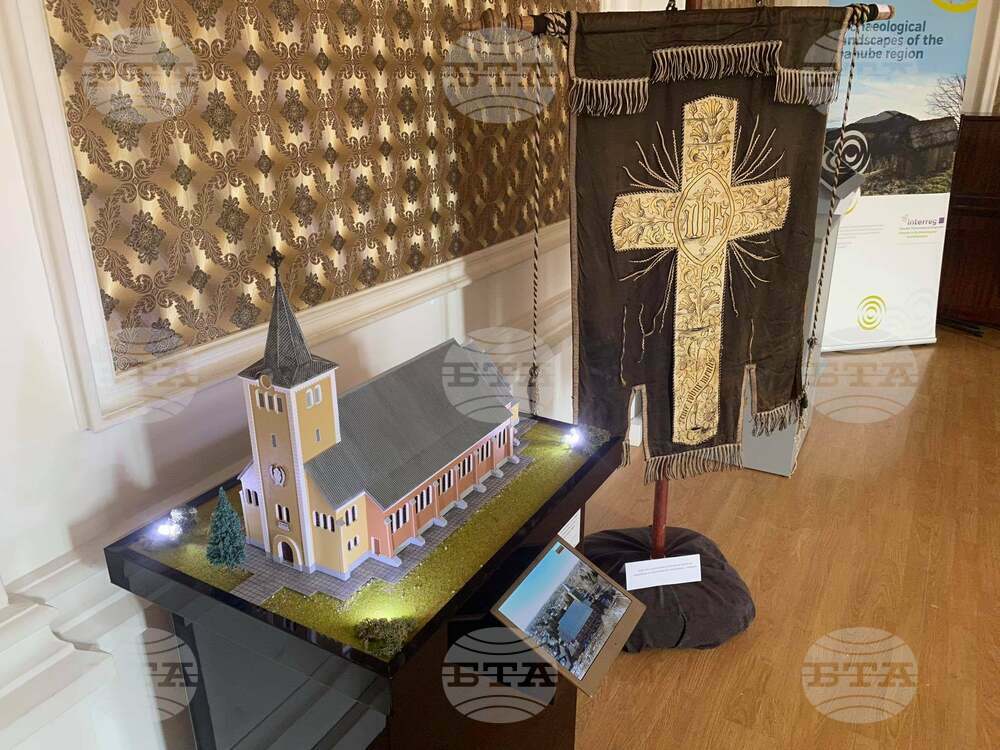site.btaEU Project Aims to Popularize Cultural and Historical Heritage of Bulgaria and Romania in Cross-Border Region


The popularization of the cultural and historical heritage of Bulgaria and Romania in the cross-border region is the basis of the project "Danube – A river with lot of common history". It is the second project implemented by the Open Hand Foundation under the Interreg V-A Romania-Bulgaria Programme 2014-2020, co-financed by the European Union through the European Regional Development Fund.
"After we implemented our first project, problems emerged such as youth unemployment, low activity and migration, which are all directly related to low administrative capacity, unsustainable development and not promoting our common history with Romania", said Ralitsa Taslakova, coordinator at the Open Hand Foundation, adding that the second project now aims at preserving, developing and popularizing the cultural and historical heritage of Bulgaria and Romania in the cross-border region.
"To achieve the set goals, we studied cultural and historical sites in Romania and Bulgaria, which have a common history. For this purpose, historians from both countries worked with us", she noted. The historians then chose 18 sites (nine in Bulgaria and nine in Romania) which became part of the project. "After researching them we photographed them and made 3D scale models. We used an innovative method by publishing these models in an online platform and today they can be viewed digitally", Taslakova pointed out. In addition, the 3D models were presented in 18 exhibitions in Romania and Bulgaria. Taslakova emphasized that the introduced new technologies and methodologies for the protection of cultural heritage can be applied in other regions as well.
A Strategy for the Protection, Development, Protection and Preservation of Cultural Heritage in the Cross-Border Region was also developed, said Taslakova. "This is a necessary foundation not only for contributing to the local economic development through cultural tourism, but also for promoting common history and values in the cross-border region," she emphasized. According to her, the implementation of the project brings many benefits to society, such as the promotion of economic development in the cross-border region. "Cultural tourism, driven by such projects, increases the flow of tourists, which leads to growth for the local economy", she noted. This in turn leads to the creation of new jobs and business opportunities in the region. She also pointed out the encouragement of the local communities to preserve and promote the cultural heritage, which strengthens social ties and the sense of belonging.
Pleven Regional History Museum Director Dr Volodya Popov noted that the project seeks to show the relations between two countries, from the south and north of the Danube, considering the river as a symbol of unification rather than a dividing line, and looking for moments that are evidence of this common development. "Bringing architecture to the forefront of the project is understandable. The reason for this strong presence of architecture from the 18th, 19th and early 20th century in this area is that the Danube River played its positive role in the development of these regions", said Popov.
According to him, the Strategy includes the buildings that show the political connections between Bulgaria within the Ottoman Empire and Romania in its autonomous existence in the second half of the 19th century. Examples of cities with such architecture are Vidin, Kalafat, Svishtov, Oryahovo, Ruse, Tutrakan, Silistra, Gyurgevo and Calarasi. "The aspiration of the Strategy is to show a general attitude of the population in the cross-border region towards progress, which was not related to the politics of that period," Popov said.
/PP/
news.modal.header
news.modal.text